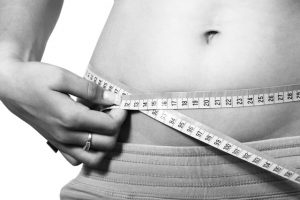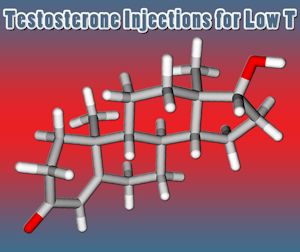Video Link: https://vimeo.com/293638929
Video Download: Click Here To Download Video
Video Stream: Click Here To Stream Video
High Cholesterol is one of the leading risk factors associated with poor heart health and increased mortality rate from conditions associated with the heart and the cardiovascular system. The quickest way to get dangerously high cholesterol levels under control quickly is through the use of Statin Drugs and similar medications. Still, for patients that are looking to prevent their cholesterol levels from reaching a problematic, dangerous level, there are several steps that you can take to keep your cholesterol under control.
Also, even if you do currently take drugs to control your cholesterol, it's still heavily in your favor as a patient to make strong efforts to improve your natural cholesterol balance, not only to limit your need for Cholesterol Medications but also because these same steps can significantly improve your health in a variety of ways.
Lose Weight to Control Cholesterol
The food that you eat and the bodyfat that you carry play a significant, central role in your underlying cholesterol levels. If you lose weight, you help get your cholesterol in check more effectively. If you eat less of the foods associated with elevated cholesterol, you'll also improve your Cholesterol balance.
A little lost weight can go a long way when it comes to controlling cholesterol. For example, losing only five to ten percent of your weight can lead to major benefits about your cholesterol.
There are a lot of steps that you can take to drop the pounds. For example, many people eat when they are frustrated or bored, but there are lots of more productive things that you can do. Go for a jog or run some errands. Even just taking a walk around the block can help out a lot. Take stock of habits that lead you to overeat or be underactive.
For example, if you are always in a hurry for work and end up having to eat fast food every practically daily, pack lunch, or rearrange your schedule so that you have more time to eat. If you find yourself eating unhealthy food in front of the television, switch to eating fruit or vegetables, such as cauliflower, broccoli, or carrots.
Do everything that you can to increase the activity in your day. Even relatively small things like taking the stairs instead of the elevator can produce significant gains.
Eat Foods that Are Proven Healthy for the Heart
It doesn't matter how long you've catered to unhealthy cravings, or how old you are, altering your diet can quickly lead to immensely positive changes in your health, wellness, and cardiovascular profile.
Not all fats are created equal. For example, you should try to delete transfats from your life, period completely. They are incredibly unhealthy and do nothing but harm your heart in the long term. Saturated fats, on the other hand, are necessary, but most people consume far too much-saturated fat. Most people should only consume around seven percent of their diet in saturated fat. Saturated fat has been clearly shown to elevate Cholesterol Levels.
Most of the fat from your diet should come from unsaturated and monounsaturated fats. Canola, peanut, and olive oil are three strong choices to infuse your diet with monounsaturated fats. To reduce the amount of fat you consume in your diet, turn to dairy products with low-fat, and choose lean meats over their fatty counterparts.
A no-brainer for lowering your cholesterol is to eat less cholesterol. The average, healthy person should have no more than three hundred milligrams of daily cholesterol, and at-risk patients should have even less—two hundred max.
Certain products are particularly high in cholesterol, including whole milk, egg yolks, and meats such as liver that are made from organs.
Ditch the white bread and other highly processed bread for whole-grain bread. Whole grains are loaded with super nutrients that have been shown to promote cardiovascular health strongly. Brown rice, whole-wheat flour, whole-wheat pasta, and whole-grain bread are all awesome choices.
Eat lots of fruits and veggies, especially those with high levels of fiber. Dietary fiber helps cholesterol pass through the digestive system without being fully absorbed, which helps promote lower cholesterol. Dried fruits are also an option, but they are dense in calories and are easy to overeat, so they should be consciously consumed in moderation.
Finally, add Omega-3 Fatty Acids to your diet. These nutrients have been shown to suppress LDL Cholesterol, improving your heart health. Cold-water fish such as herring, mackerel, and salmon are among the best sources of Omega-3s, but flaxseeds, almonds, and walnuts are quality choices as well.
Exercise Regularly to Promote Improved Cholesterol Balance
In addition to controlling what you eat to balance cholesterol, you can also improve your activity level to promote improved cardiovascular health. There is undeniable evidence that modest, regular exercise can boost good HDL Cholesterol. Around thirty minutes of activity four to six times per week can provide significant improvement. You can even chop up that thirty minutes throughout your day if it suits you!
Here are some exercise options to think about:
- Play sports that you enjoy, such as basketball, golf, or soccer.
- Go to the pool for a swim.
- Take your bike, rather than your car, to work.
- Go for a walk during lunch.
In addition to scheduled exercise, make the conscious decision to be more active in your day-to-day activities. Doing push-ups in front of the television, or using the staircase as opposed to the elevator are smart choices as well.
Stop Smoking for Your Heart!
Smoking causes incredible levels of stress on your heart and your lungs over time. For example, smoking increases your LDL Cholesterol Levels and suppresses your HDL Cholesterol Levels. The cardiovascular benefits of smoking cessation can occur very quickly.
For instance, after only about twenty minutes, blood pressure drops. Within a single day, you become less likely to have a heart attack. After a single year, you drop your heart disease risk by fifty percent. If you stop smoking for the long haul, your heart will be nearly as healthy as a non-smoker after fifteen years.
Consume Moderate Levels of Alcohol Regularly
There is evidence that drinking alcohol is associated with improved HDL Cholesterol Levels. The benefits are significant, but not so intense that people should pick up drinking just for the heart-health benefit. For men over sixty-five and women, one drink per day is the ideal amount to maximize the benefits of alcohol for the heart.
For men under sixty-five, two beverages appear to be the sweet spot. Of course, alcohol abuse is counterproductive and can increase the risk of stroke, heart failure, and hypertension.
Lifestyle Changes Not Always Sufficient to Control Cholesterol
Even the most structured changes in lifestyle may not ultimately be enough to get your Cholesterol Levels under control. If your doctor feels that Statins or other Cholesterol-Lowering Medications may benefit you as a patient, take their advice, and get your prescription filled. These lifestyle changes can help control your need for medication in the long-run, and they will provide other ancillary benefits, so keep up the good work, even if you have to start taking pills for cholesterol!
Contact Us Today For A Free Consultation

- Andropause Symptoms Treatment - Fixing Male Menopause - Video [Last Updated On: November 25th, 2024] [Originally Added On: July 12th, 2012]
- Andropause: Male Menopause - Video [Last Updated On: November 25th, 2024] [Originally Added On: July 12th, 2012]
- About Andropause - Video [Last Updated On: November 25th, 2024] [Originally Added On: July 12th, 2012]
- MALE MENOPAUSE, MANOPAUSE, OR ANDROPAUSE? - Video [Last Updated On: November 25th, 2024] [Originally Added On: July 12th, 2012]
- Andropause Menopause Symptoms and Solutions Testosterone - Video [Last Updated On: November 25th, 2024] [Originally Added On: July 12th, 2012]
- Treatments for Male Menopause/Andropause/Manopause/Testosterone Deficiency - Video [Last Updated On: December 20th, 2024] [Originally Added On: July 12th, 2012]
- What is testosterone deficiency syndrome/male menopause/.andropause - Video [Last Updated On: November 25th, 2024] [Originally Added On: July 12th, 2012]
- Testosterone Deficiency Syndrome/Andropause - Video [Last Updated On: December 20th, 2024] [Originally Added On: July 12th, 2012]
- John Crisler DO - Andropause [Last Updated On: December 20th, 2024] [Originally Added On: July 12th, 2012]
- Menopause/Andropause [Last Updated On: December 20th, 2024] [Originally Added On: July 12th, 2012]
- Male Andropause: Part 2 - Video [Last Updated On: December 20th, 2024] [Originally Added On: July 12th, 2012]
- Dr. Steven Jepson discusses Andropause - Video [Last Updated On: December 20th, 2024] [Originally Added On: July 12th, 2012]
- Maturitas publishes clinical guide on low-dose vaginal estrogens for vaginal atrophy [Last Updated On: January 10th, 2018] [Originally Added On: September 13th, 2012]
- Testosterone Deficiency in Men - Andropause Symptoms and Treatment - Video [Last Updated On: January 4th, 2025] [Originally Added On: November 2nd, 2012]
- Andropause - The Male Menopause - Video [Last Updated On: January 3rd, 2025] [Originally Added On: November 2nd, 2012]
- SA STGEC ~ Ad Hoc Talk: Andropause (2006) - Video [Last Updated On: January 4th, 2025] [Originally Added On: November 2nd, 2012]
- The Cosmetic Medic Stamford CT - Video [Last Updated On: November 2nd, 2012] [Originally Added On: November 2nd, 2012]
- Testosterone Roundtable -- Overview of Low Testosterone (Part 1) - Video [Last Updated On: November 2nd, 2012] [Originally Added On: November 2nd, 2012]
- Naturally Increase Testosterone Levels - Video [Last Updated On: November 26th, 2012] [Originally Added On: November 26th, 2012]
- Patients Medical Welcomes Dr. Marcia A. Harris, Holistic Gynecologist and Anti-Aging Physician [Last Updated On: May 4th, 2015] [Originally Added On: December 2nd, 2012]
- ALCAT Pioneer, Roger Deutsch, to Address "Food Induced Inflammation and Aging" at Vienna's Prestigious December ... [Last Updated On: May 4th, 2015] [Originally Added On: December 5th, 2012]
- Andropause: Changes in Aging Men - Video [Last Updated On: December 10th, 2012] [Originally Added On: December 10th, 2012]
- Rhein Test Kit - Avante Medical Center - Video [Last Updated On: December 10th, 2012] [Originally Added On: December 10th, 2012]
- AM Northwest Appearance - Andropause - Video [Last Updated On: December 10th, 2012] [Originally Added On: December 10th, 2012]
- Lessons in Menopause for Men - Video [Last Updated On: December 15th, 2012] [Originally Added On: December 15th, 2012]
- AAG Health Publishes Testosterone and HGH Discussion-Blog [Last Updated On: May 4th, 2015] [Originally Added On: December 26th, 2012]
- Understanding Andropause: Erectile Dysfunction - Part Two - Video [Last Updated On: February 26th, 2013] [Originally Added On: February 26th, 2013]
- Airing March 2 and 3: BBC World News 30-Minute Segment on Andropause/Aging with Dr. Jeff Life, Healthy Aging Expert ... [Last Updated On: February 28th, 2013] [Originally Added On: February 28th, 2013]
- Andropause - Great Android App For Men - Vigor - Stamina - Video [Last Updated On: February 28th, 2013] [Originally Added On: February 28th, 2013]
- Eastday-Survey finds 1m locals suffer from andropause [Last Updated On: May 4th, 2015] [Originally Added On: May 22nd, 2013]
- What Is Andropause?Diagnosis,Symptoms,Treatment [Last Updated On: July 2nd, 2013] [Originally Added On: July 2nd, 2013]
- Andropause - Video [Last Updated On: July 2nd, 2013] [Originally Added On: July 2nd, 2013]
- Andropause Glossary - Video [Last Updated On: July 2nd, 2013] [Originally Added On: July 2nd, 2013]
- Andropause Symptoms - Video [Last Updated On: July 2nd, 2013] [Originally Added On: July 2nd, 2013]
- Understanding Andropause: Erectile Dysfunction - Part One - Video [Last Updated On: July 2nd, 2013] [Originally Added On: July 2nd, 2013]
- Understanding Andropause - Video [Last Updated On: July 2nd, 2013] [Originally Added On: July 2nd, 2013]
- Andropause video - Video [Last Updated On: July 8th, 2013] [Originally Added On: July 8th, 2013]
- ANDROPAUSE SOLUTION "OSS-TEST" TOP BEST NATURAL TESTOSTERONE BOOSTER - Video [Last Updated On: August 3rd, 2013] [Originally Added On: August 3rd, 2013]
- Natural relief for andropause [Last Updated On: December 2nd, 2017] [Originally Added On: October 10th, 2013]
- Andropause - Causes, Symptoms, Treatment, Diagnosis - Seniors ... [Last Updated On: January 7th, 2018] [Originally Added On: November 3rd, 2013]
- Andropause - Causes, Symptoms, Treatment, Diagnosis - Men's Health ... [Last Updated On: December 31st, 2017] [Originally Added On: November 3rd, 2013]
- Andropause Specialist [Last Updated On: January 21st, 2018] [Originally Added On: November 10th, 2013]
- Understanding Andropause [Last Updated On: October 24th, 2015] [Originally Added On: November 10th, 2013]
- Andropause - Causes, Symptoms, Treatment, Diagnosis - Men's ... [Last Updated On: January 20th, 2018] [Originally Added On: November 18th, 2013]
- Andropause | Male Menopause | Male Menopause Symptoms | Male ... [Last Updated On: November 25th, 2018] [Originally Added On: November 18th, 2013]
- Symptoms of andropause - Men's health [Last Updated On: November 25th, 2018] [Originally Added On: November 21st, 2013]
- Andropause In Men [Last Updated On: December 9th, 2017] [Originally Added On: November 23rd, 2013]
- Andropause - Male Menopause - Androgen Replacement Therapy [Last Updated On: January 13th, 2018] [Originally Added On: November 25th, 2013]
- Andropause 2013 - Reviewed and Ranked - Independent Reviews on ... [Last Updated On: November 25th, 2013] [Originally Added On: November 25th, 2013]
- Andropause, Facts, Symptoms, Diagnosis, Testosterone Treatment [Last Updated On: January 18th, 2018] [Originally Added On: November 27th, 2013]
- Symptoms of Andropause (Male Menopause): Low Testosterone, Low ... [Last Updated On: December 13th, 2017] [Originally Added On: November 27th, 2013]
- Discovery Health "Andropause: Dealing With Male Menopause" [Last Updated On: December 5th, 2017] [Originally Added On: November 27th, 2013]
- Global Toronto's News at Noon Andropause aka "manopause" - Video [Last Updated On: November 27th, 2013] [Originally Added On: November 27th, 2013]
- San Diego Dermatologist Discusses Male Menopause | Andropause Expert in San Diego - Video [Last Updated On: December 7th, 2017] [Originally Added On: December 9th, 2013]
- The American Academy of Anti-Aging Medicine (A4M) Concludes Largest Event in Anti-Aging, Regenerative and Aesthetic ... [Last Updated On: December 19th, 2013] [Originally Added On: December 19th, 2013]
- Andropause Symptoms - Male Menopause Symptoms [Last Updated On: December 16th, 2017] [Originally Added On: December 27th, 2013]
- What Is Andropause? | eHow - eHow | How to Videos, Articles ... [Last Updated On: January 20th, 2018] [Originally Added On: December 30th, 2013]
- Drug companies are pushing that new-man feeling Low T, high stakes [Last Updated On: January 16th, 2014] [Originally Added On: January 16th, 2014]
- Andropause - Male Menopause - Androgen Replacement Therapy ... [Last Updated On: December 24th, 2017] [Originally Added On: January 16th, 2014]
- Male Menopause Symptoms, Treatments, Causes, and More [Last Updated On: January 15th, 2018] [Originally Added On: January 16th, 2014]
- Can you reverse the aging process? [Last Updated On: January 17th, 2014] [Originally Added On: January 17th, 2014]
- Yourwellness Magazine Explores Male Menopause [Last Updated On: January 19th, 2014] [Originally Added On: January 19th, 2014]
- Antiaging Medicine and Research, India Will Highlight “Hormones and Aging in Medical Practice” During 5th Indomedicon ... [Last Updated On: January 24th, 2014] [Originally Added On: January 24th, 2014]
- Care needed when controlling cholesterol [Last Updated On: October 23rd, 2020] [Originally Added On: January 27th, 2014]
- Symptoms of Andropause (Male Menopause): Low Testosterone ... [Last Updated On: October 11th, 2020] [Originally Added On: January 30th, 2014]
- Antiaging Medicine and Research, India Will Highlight Hormones and Aging in Medical Practice During 5th Indomedicon ... [Last Updated On: October 24th, 2020] [Originally Added On: January 31st, 2014]
- The truth about low testosterone and 'male menopause' [Last Updated On: October 31st, 2020] [Originally Added On: January 31st, 2014]
- Surge or shrink [Last Updated On: November 1st, 2020] [Originally Added On: February 11th, 2014]
- How Does Andropause Affect Men? - Video [Last Updated On: November 10th, 2020] [Originally Added On: February 14th, 2014]
- Andropause | Male Menopause | Male Menopause Symptoms ... [Last Updated On: November 25th, 2018] [Originally Added On: February 15th, 2014]
- NuMale Medical - Low Testosterone -- Andropause - Video [Last Updated On: October 21st, 2020] [Originally Added On: February 21st, 2014]
- Boost Your Sex Drive: Solutions For Impotence, Erectile Dysfunction And Low Libido [Last Updated On: May 4th, 2015] [Originally Added On: February 27th, 2014]
- HowStuffWorks "Andropause: Dealing With Male Menopause" [Last Updated On: October 16th, 2020] [Originally Added On: March 7th, 2014]
- The Truth About Andropause: Male Menopause - Explained by Hormone Expert, Dr. Ken G. Knott, MD - Video [Last Updated On: November 20th, 2020] [Originally Added On: March 7th, 2014]
- What Is Andropause? It's Symptoms In Men & Treatment ... [Last Updated On: November 11th, 2020] [Originally Added On: March 14th, 2014]
- Andropause Low Testosterone A Drug Free Natural Approach UnitedMulticare com - Video [Last Updated On: October 9th, 2020] [Originally Added On: March 15th, 2014]
- Low Testosterone (Andropause). What is it? - Video [Last Updated On: October 30th, 2020] [Originally Added On: March 15th, 2014]
- Male menopause is a reality [Last Updated On: October 13th, 2020] [Originally Added On: March 24th, 2014]
- Anatomy Menopause Andropause - Video [Last Updated On: March 25th, 2014] [Originally Added On: March 25th, 2014]
- Menopause & Andropause - Video [Last Updated On: November 7th, 2020] [Originally Added On: March 30th, 2014]
Word Count: 1201





















